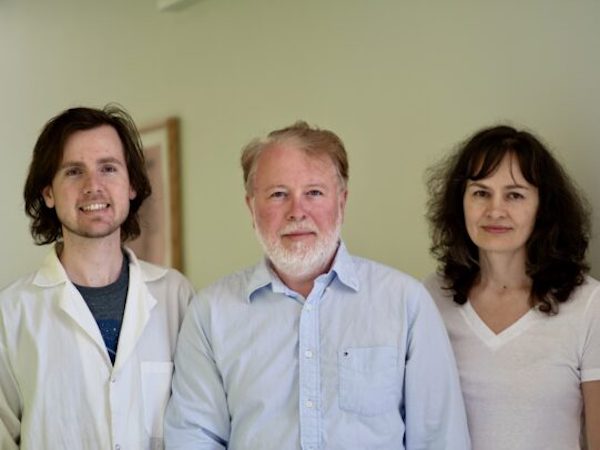Researchers design new drug candidates to treat tropical parasitic infection
story Heading link

A new class of compounds co-invented by researchers at the University of Illinois Chicago offers potential new options for treating schistosomiasis, the second most important parasitic disease of humans in terms of morbidity and mortality after malaria.
An estimated 200 million people worldwide suffer from schistosomiasis, a disease caused by blood fluke worms acquired through exposure to contaminated water sources. Most cases occur in Africa, the Middle East, Brazil and Southeast Asian countries, predominantly in under-resourced and rural communities.
Global health experts recommend that people in at-risk areas receive preventive treatment for the disease, killing the worms and their eggs before they can cause disability and death. But the only currently available drug, praziquantel, has limitations such as a low cure rate, the potential for drug resistance and difficulties in administration in remote areas and to children.
A collaboration between researchers from the UIC College of Pharmacy, Rush University Medical Center and the University of L’Aquila in Italy tackled this challenge with cutting-edge tools for modern drug discovery, including computational design, X-ray crystallography and cryogenic electron microscopy. Their efforts, published in Nature Communications, identified, tested and optimized a new class of enzyme inhibitors that were found effective in killing the parasite in mice, offering a possible alternative treatment for schistosomiasis and related diseases.
Pavel Petukhov, professor of pharmaceutical sciences at UIC Pharmacy and technology lead for structure-based drug design at UICentre, and his colleagues at UIC contributed computational modeling, medicinal chemistry, and pharmacokinetics expertise to the researchers’ quest for inhibitors of the enzyme thioredoxin glutathione reductase. TGR mediates important cellular processes in both the blood fluke species that cause schistosomiasis and in humans. But while humans have alternative enzymes that can perform the same function, the worms do not; for worms, blocking the activity of TGR is fatal.
Researchers used high-throughput screening to identify over 100 small molecule compounds with this function, and examined their structure and how they bind to the TGR enzyme with X-ray crystallography and cryogenic electron microscopy. Petukhov’s group then used structure-based computational models to further optimize the most promising candidates for their ability to permeate the worms and block their enzyme at doses low enough to avoid side effects in the host.
Of these, 10 were chosen for further experiments in laboratory animals. One particular compound was found equally effective as praziquantel at killing adult worms and was superior against juvenile worms — a limitation of praziquantel that necessitates a two-pill regimen difficult to implement in populations without consistent medical care. The effects were seen at dosages that could be given orally, another important feature for clinical use.
The group is now further refining that star compound to further boost its effectiveness, while also taking steps toward additional trials and commercialization. Because the TGR enzyme is critical for many of the most common parasites in both humans and animals — and even a target in some cancer treatments — the utility of these compounds could go far beyond schistosomiasis.
“This is a novel class of inhibitors that people did not have before, and it inhibits the same enzyme in parasites causing other tropical diseases including malaria and cryptosporidium,” Petukhov said. “This shows the potential for multiple new applications we haven’t even touched yet.”
In addition to Petukhov, UIC co-authors included Luke Harding, Dejan Nikolic and Valentina Petukhova of the pharmaceutical sciences department, Vamshikrishna Gone and Daniel D. Lantvit of UICentre, and Bikash Dangi and Jeremy J. Johnson of the pharmacy practice department.